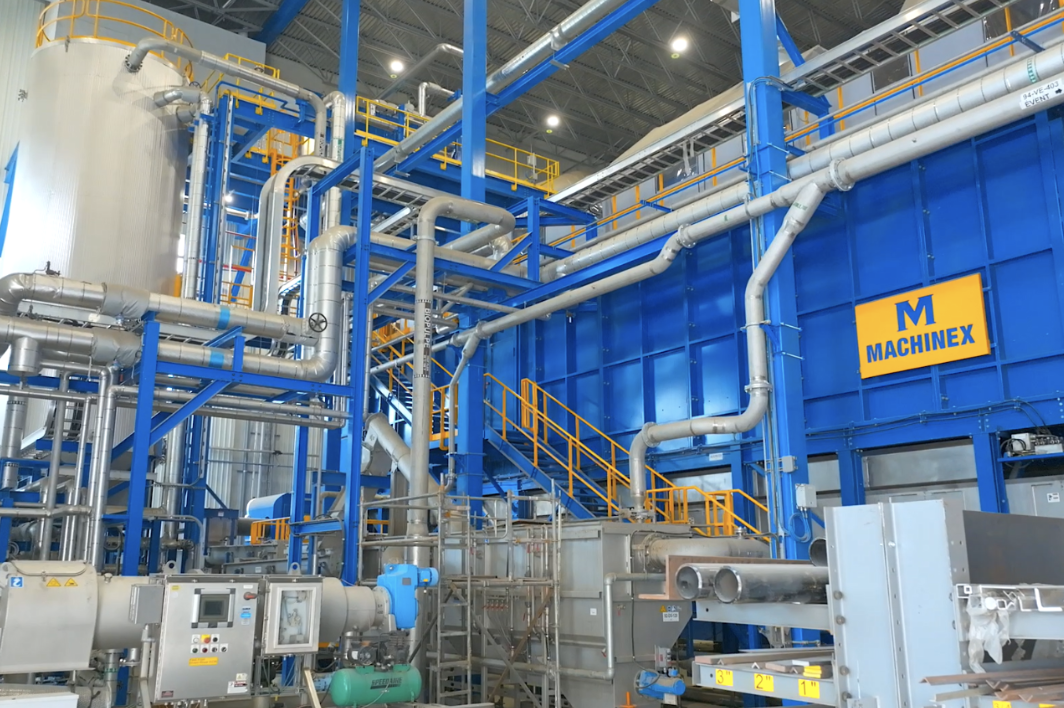
Machinex provided a co-collection organic material recovery system to Quebec City, Canada. | Courtesy of Machinex
Residents of Quebec City, Canada, are now served by the first commingled recyclables and organics collection system in North America, the system developer recently announced.
The Machinex system uses three MACH Hyspec optical sorters to process up to 250,000 tons of municipal materials per year, sorting out about 86,600 tons of organics from the remaining recyclables and residuals. The MACH Hyspec optical sorters can make up to 3,000 ejections per minute using a high-speed, short-wave infrared hyperspectral detection system.
Jonathan Ménard, vice president of sales and strategic positioning at Machinex, said in a press release that the system represents a new way to sort organic materials, as it will seek out special purple bags residents use for organics.
Once detected, the bags are propelled with compressed air onto a conveyor and separated for further processing at the Organic Material Biomethanization Center, which produces renewable natural gas and digestates for sale.
“Optical sorting and the ability to detect purple bags in the co-collection of food waste play a crucial role in the chain of sorting residual materials, enabling the redirection of organic residues to the biomethanization center,” said Marie-Josée Asselin, the vice president of the executive committee responsible for waste management in Quebec City. Ménard added that the co-collection method has been successfully tested across Europe over the past few years and is “more efficient and durable.”
The Quebec City system also includes four MACH Motion Floors, two back scrapping drums, two oscillating waste screens, two vibrating feeders and a buffer tank.
More stories about Canada
- Proposed EPR changes in Canada could inform US plans
- First phase of packaging EPR launches in Alberta
- Some tariffs suspended, metal duties coming this week
[/vc_column_text][/vc_column][/vc_row]

